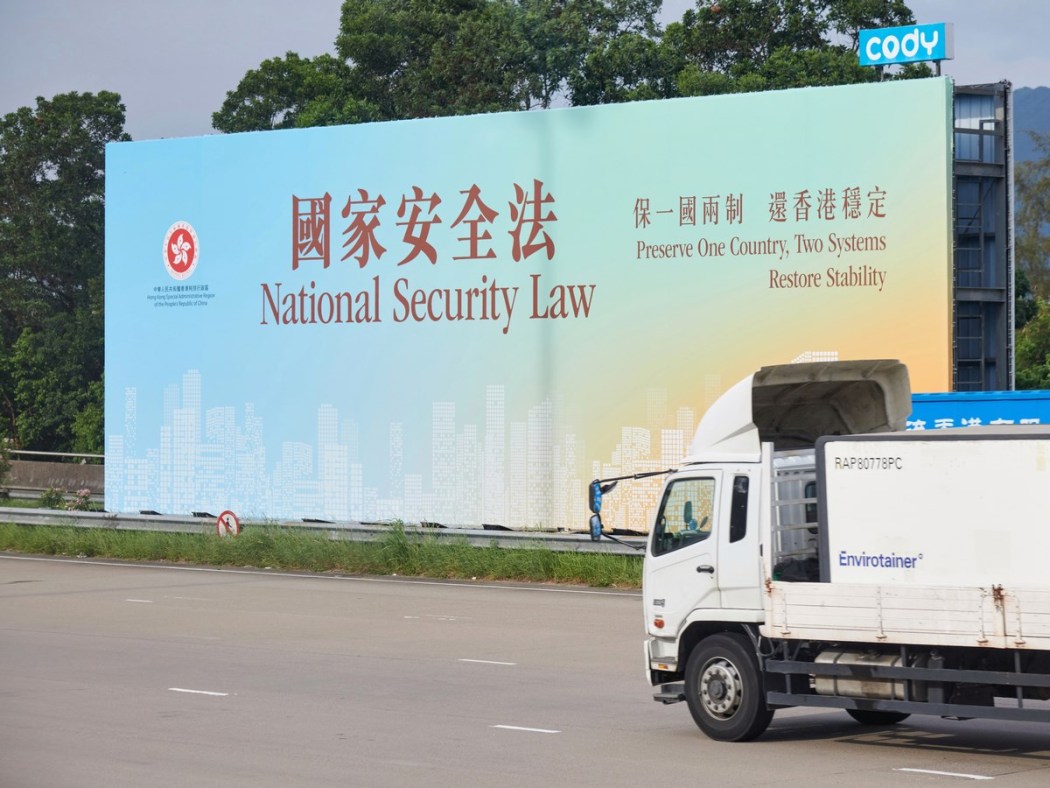The sole candidate in Hong Kong’s small-circle leadership election launched his manifesto on Friday, which included legislating the city’s own security law, nine days before the vote is set to take place.
Former chief secretary John Lee, the only person in the running to become the next chief executive on May 8, said he would further explain his policies later, as the manifesto’s “limitation in words” meant it might not cover all bases.

“I must mention here that there’s a limitation in words in my manifesto, so there may be issues not covered in my four tenets, but it doesn’t mean they are not concerned about these issues, I will make use of other opportunities to explain my thinking and governance in those regards,” said Lee.
The manifesto, the English version of which was 44 pages long, dedicated 36 pages to outlining Lee’s plans for the next administration. These covered four broad areas: strengthening governance capability, streamlining procedures to tackle housing problems, enhancing overall competitiveness, and building a caring and inclusive society and enhancing upward mobility for youths.
Enacting Article 23
The chief executive hopeful said that his administration would legislate Hong Kong’s own security law in accordance with Article 23 of the Basic Law.
Article 23 – which is different from the Beijing-imposed national security law – stipulates that the Hong Kong government shall enact its own laws to prohibit acts of treason, secession, sedition or subversion against the central government.

The first attempt to pass Article 23 was overseen by former chief executive Tung Chee-hwa and took place from 2002 to 2003, sparking a protest of more than 500,000 people, and leading to the resignation of then-secretary for security Regina Ip.
No exact deadline or timeline was mentioned in Lee’s document.
Housing and social mobility
To tackle the city’s long-standing housing problem, Lee proposed a Public Rental Housing Advance Allocation Scheme, which would allow people to move into public housing after one or more buildings in a project were completed but before other facilities are completed.
Lee also announced plans to establish two groups to be led by department secretaries to deal with housing problems, the Task Force on Public Housing Projects, and the Steering Committee on Land and Housing Supply.
The leadership hopeful proposed a pilot scheme to address intergenerational poverty. Lee vowed to help 1,000 junior secondary school students living in subdivided flats with training and subsidies offered by the government and businesses.
Lee also vowed to set up District Services and Community Care Teams in the city’s 18 districts, which would consist of volunteers recruited to facilitate the government’s work.
Inherited policies
The 64-year-old also inherited some policies from his former boss, Chief Executive Carrie Lam.
Government restructuring and Lam’s large-scale development projects – Lantau Tomorrow Vision and the Northern Metropolis – featured in Lee’s manifesto, with the former chief secretary vowing to establish a department to handle planning and development of the Northern Metropolis.
Lam introduced plans to restructure the government and build a Northern Metropolis, a bid to house around 2.5 million people in the New Territories, in the final policy address of her term last year.
Lantau Tomorrow Vision, a controversial plan to create about 1,700 hectares through land reclamation near Kau Yi Chau and Hei Ling Chau to the east of Lantau island, was introduced in 2018.
Support HKFP | Policies & Ethics | Error/typo? | Contact Us | Newsletter | Transparency & Annual Report | Apps
Help safeguard press freedom & keep HKFP free for all readers by supporting our team

LATEST FROM HKFP
HKFP has an impartial stance, transparent funding, and balanced coverage guided by an Ethics Code and Corrections Policy.
Support press freedom & help us surpass 1,000 monthly Patrons: 100% independent, governed by an ethics code & not-for-profit.











